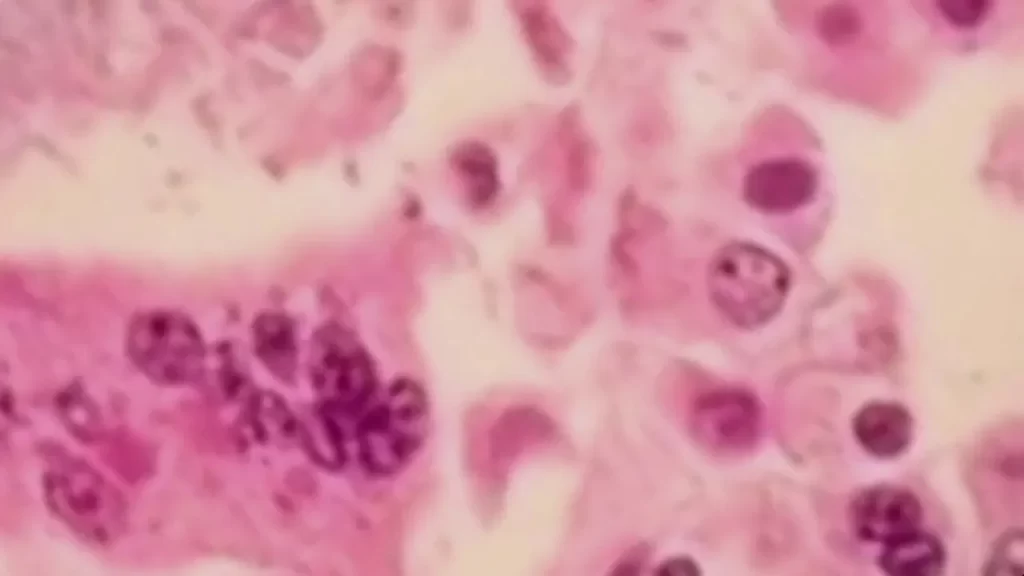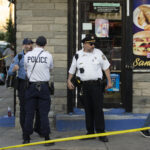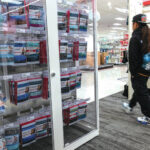The Philadelphia Department of Public Health recently issued a warning about a potential measles exposure at the Philadelphia International Airport on May 31st. According to NBC Philadelhia, an individual with a confirmed case of measles was traveling through Terminal A West from 2:50pm to 6:00pm. This has prompted concerns about the highly contagious virus potentially spreading to other travelers. In this article we talk about Philadelphia Airport Measles Warning.
Measles is an extremely contagious viral infection that can lead to serious complications like pneumonia, brain swelling, and even death in some cases. The virus spreads through coughing and sneezing and can linger in the air and on surfaces for up to 2 hours after an infected person leaves an area. About 90% of unvaccinated people will contract measles if exposed.
The health department was quick to reassure the public that they do not believe there is an ongoing threat at the airport. However, they advise that anyone who was present in Terminal A West during the stated timeframe should review their measles immunity. Getting vaccinated is the best way to protect against measles.
Who is at risk after a public measles exposure?
The people at highest risk during a public measles exposure like this one are unvaccinated infants under 12 months old, unvaccinated pregnant women, and those with compromised immune systems. These individuals can develop serious or even deadly complications from measles and should consult their doctor immediately if they were present during the exposure timeframe.
In addition, anyone born after 1957 who has not had measles before or received two doses of the MMR (Measles, Mumps, Rubella) vaccine should speak with their healthcare provider about getting vaccinated. People in this group may be at risk if they have not confirmed their immunity.
What to do if you may have been exposed
The health department offered the following recommendations for travelers who may have crossed paths with the infected passenger at Philadelphia International Airport on May 31st:
- Confirm measles immunity with your healthcare provider. Adults born before 1957 and those who’ve received two MMR vaccine doses or had lab-confirmed measles previously are considered immune.
- If you cannot confirm immunity, receive an MMR booster shot within 72 hours of exposure to gain protection. Speak to your doctor right away.
- Infants under 12 months old, pregnant women, and immunocompromised people potentially exposed should consult their doctor immediately even if they’ve been vaccinated. Extra precautions may be needed.
- Wear a surgical mask in indoor public places and avoid contact with unvaccinated people until June 21st. Measles symptoms typically appear 7-21 days after exposure.
- Monitor for early symptoms like high fever, cough, runny nose and red eyes followed by a blotchy rash and contact your doctor immediately so appropriate isolation precautions can be taken. Also notify the health department.
This warning comes amidst a resurgence of measles across the United States after elimination was declared in 2000. Several major outbreaks have occurred this year, highlighting the risks posed when vaccination rates decline in communities. Health officials are working urgently to contain spread and protect vulnerable groups through public alerts like this one. They also emphasize the proven safety and lifesaving benefits of widespread measles vaccination. I sincerely hope you find this “Philadelphia Airport Measles Warning – What You Need to Know” article helpful.

Skylar Lacey, a Travel and Tourism Management graduate from Temple University, offers 5 years of experience in travel writing and airport logistics at PhiladelphiaAirport.net. Her expertise helps travelers make the most of their journeys through Philadelphia International Airport. Connect with her on Instagram for more travel tips and insights.







